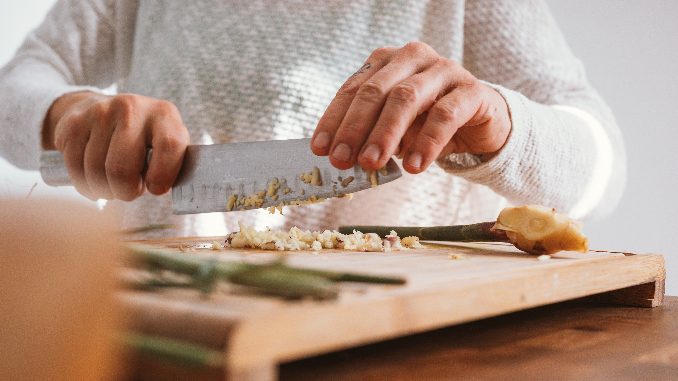The British Cooks Making Eating More Accessible
Photo by Conscious Design/Unsplash Food Features cookbooks
As someone with a huge appetite, I’m well aware that food is a fundamental human need. We’ve obviously come a long way from our hunter-gatherer ancestors, but in 2022, it seems that food consumption has reached new levels of convenience. Whether that’s a ready meal, fast-food joint, Deliveroo bringing us restaurant-quality food to our kitchen tables (or more likely, hungover beds) or the latest trend for instant grocery deliveries, you would think it would be easier than ever for people to find ways to eat.
However, currently, in the UK, the rising cost of living, including a leap in food prices, has meant more people have been forced into food insecurity than ever. This has left a large portion of the British nation with no choice but to rely on food banks (often community- or charity-run food distribution centers that distribute donations from the public or food waste organizations). According to the Trussell Trust, a leading charity in the food insecurity space, over 2.1 million food parcels were delivered across the UK in 2021 to 2022, a 14% increase from the previous year. Whilst those who are more well-off in society pay a premium for groceries to be delivered on demand, others are currently unable to even afford to shop in a supermarket.
Often, critics of fast and convenience foods will cite how easy it is for people to make their own food from scratch. However, many of those critics don’t consider the implications of the limited budget and resources available to someone using a food bank. There is also evidence that links poor mental health with a lower socioeconomic status, and for those who are already struggling, possibly working multiple jobs and juggling childcare, finding the time and/or mental energy required in order to plan, source and prepare fresh meals can be impossible.
Enter Ruby Tandoh and Jack Monroe, two British cooks and food writers addressing the people’s need for simple and inexpensive food.
Monroe is a chef, food writer and anti-poverty activist best known for producing recipes on a shoestring budget. Born out of necessity during their experiences as a single parent, they started creating recipes based on the concept of using canned ingredients to make substantial and tasty meals. The recipes are all available for free on their website (you can donate to support their work if you can), and they have a range of cookbooks for those who can afford them. The recipes prove food snobs everywhere wrong and demonstrate how you really can make food out of a tin taste delicious.
No stranger to mental or physical health issues, Monroe has also documented their struggles with cooking and disability. They share tips on how to cook in a small kitchen and how to make meals when suffering from chronic pain.
Tandoh, a former finalist on the Great British Bake Off, is also changing the game, particularly with her latest cookbook Cook as You Are: Recipes for Real Life, Hungry Cooks and Messy Kitchens. The book focuses on getting food from pan to mouth as quickly and as easily as possible, often with what you have in the cupboard. Whilst her recipes don’t specifically take into account budgeting like Monroe’s do, Tandoh is not puritanical about food and sees nothing wrong with taking shortcuts or changing up recipes to work with what you have available.
Along with the physical copy of her book, Tandoh has produced an “easy-read” version of Cook as You Are that is available to download for free. She states on her website that this book can be suitable for people with learning difficulties (and in my opinion, complete novice cooks too), as she explains the recipes with crystal clear steps and photo instructions, including images of utensils and the ingredients themselves.
The easy-read version also includes recipes that call for using the same ingredients for more than one meal. This not only helps to cut food waste but reduces the mental energy required to think of what recipe can incorporate half a can of chopped tomatoes before they go off in your fridge.
Tandoh also makes sure that the physical copy of her book includes tips for making her recipes more accessible for those with disabilities. For example, she offers shortcuts for those who may have a hard time chopping or prepping ingredients. The illustrations in the book also represent a wide range of people with and without disabilities.
Both Jack Monroe and Ruby Tandoh provide lifelines for people in difficult situations who need to feed themselves and their families. However, whilst their work is no doubt invaluable, as the cost of living is only set to rise in the UK, it’s clear we shouldn’t just be relying on the work of chefs and food writers to make food more accessible—we will need more wide-reaching national strategies to give people access to the food they deserve.